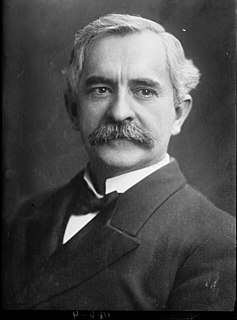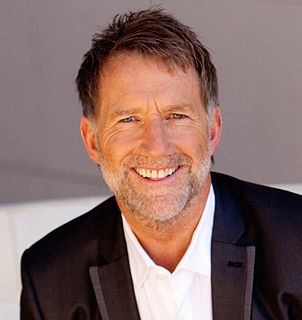A Quote by Paul Tillich
Faith consists in being vitally concerned with that ultimate reality to which I give the symbolical name of God. Whoever reflects earnestly on the meaning of life is on the verge of an act of faith.
Related Quotes
Faith as ultimate concern is an act of the total personality. It happens in the center of the personal life and includes all its elements. Faith is the most centered act of the human mind. It is not a movement of a special section or a special function of man's total being. They all are united in the act of faith.
When a faith-healer commands God to perform a miracle, in the absence of a prayer that says, 'Thy will be done,' it is, as far as I am concerned, the most rank form of arrogance . . . The faith-healer Bosworth once said that faith makes God act. If you follow that line of reasoning God is in His heaven, but Bosworth rules the world!
We need a quickening of faith; faith in the power of the God of Pentecost to convict and convert three thousand in a day. Faith, not in a process of culture by which we hope to train children into a state of salvation, but faith in the mighty God who can quicken a dead soul into life in a moment; faith in moral and spiritual revolution rather than evolution.
Faith, faith, faith in ourselves, faith, faith in God, this is the secret of greatness.If you have faith in all the three hundred and thirty millions of your mythological Gods, and in all the Gods which foreigners have now and again introduced into your midst, and still have no faith in yourselves, there is no salvation for you.
For the sacrificed, in the hour of sacrifice, only one thing counts: faith-alone among enemies and skeptics. Faith, in spite of the humiliation which is both the necessary precondition and the consequence of faith, faith without any hope of compensation other than he can find in a faith which reality seems so thoroughly to refute.
I have said that science is impossible without faith. ... Inductive logic, the logic of Bacon, is rather something on which we can act than something which we can prove, and to act on it is a supreme assertion of faith ... Science is a way of life which can only fluorish when men are free to have faith.
We are building a dictatorship of relativism that does not recognize anything as definitive and whose ultimate goal consists solely of one's own ego and desires.
We, however, have a different goal: the Son of God, the true man. He is the measure of true humanism. An "adult" faith is not a faith that follows the trends of fashion and the latest novelty; a mature adult faith is deeply rooted in friendship with Christ.
Faith by its very nature must be tried, and the real trial of faith is not that we find it difficult to trust God, but that God's character has to be cleared in our own minds. Faith in its actual working out has to go through spells of unsyllabled isolation. Never confound the trial of faith with the ordinary discipline of life. Much that we call the trial of faith is the inevitable result of being alive.
Why does philosophy use concepts and why does faith use symbols if both try to express the same ultimate? The answer, of course, is that the relation to the ultimate is not the same in each case. The philosophical relation is in principle a detached description of the basic structure in which the ultimate manifests itself. The relation of faith is in principle an involved expression of concern about the meaning of the ultimate for the faithful.
Faith is lifeless unless you act on it. T.L. Osbourne says: “When the promises of God are believed and acted upon they become the power of God”. We can do all the things we have previously talked about about: desire, decision, prayer, speaking faith, seeing the answer, but if we don’t act our faith it is all to no avail.
The reality of living by faith as though we were already dead, of living by faith in open communion with God, and then stepping back into the external world as though we are already raised from the dead, this is not once for all, it is a matter of moment-by-moment faith, and living moment by moment. This morning's faith will never do for this noon. The faith of this noon will never do for suppertime . The faith of suppertime will never do for the next morning. Thank God for the reality for which we were created, a moment-by-moment communication with God himself.
It is never on account of its formal nature as a psychic act that faith is conceived in Scripture to be saving. It is not, strictly speaking, even faith in Christ that saves, but Christ that saves through faith. The saving power resides exclusively, not in the act of faith or the attitude of faith or nature of faith, but in the object of faith.
Faith in the continuance and enhancement of the intrinsic values--faith in truth, in beauty, in friendship, in love and harmony of life--in short, faith in reason and the worth of spiritual life--such faith is only another name for faith in the persistence of spiritual individuality. For, I repeat, these values are real only as functions of personal experience and deed. To have faith in the permanence of intrinsic values is to assume the enduring reality of selves who know truth, feel beauty, who love and win spiritual harmony.
People think of faith as being something that you don't really believe, a device in helping you believe simply it. Of course that is quite wrong. As Pascal says, faith is a gift of God. It is different from the proof of it. It is the kind of faith God himself places in the heart, of which the proof is often the instrument... He says of it, too, that it is the heart which is aware of God, and not reason. That is what faith is: God perceived by the heart, not be reason.



































